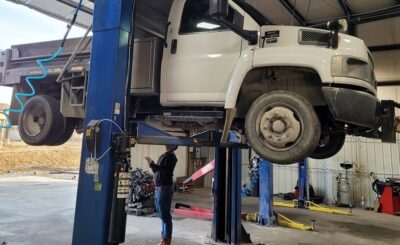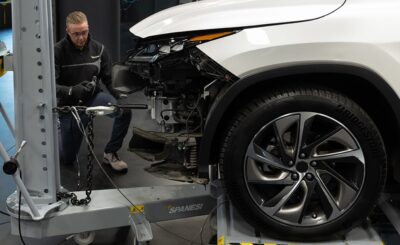Steering wheel feedback is how the driver feels the road through the wheel. Good feedback means clear and precise responses from the vehicle. Poor feedback can signal problems with the steering system. Professional evaluation helps distinguish normal feel from concerning issues. Service centers offer tiered evaluations. Each tier builds on the previous level of inspection and repair. This article explains how these service tiers help keep steering feedback accurate and safe.
Basic Steering Feel Assessment
The first service tier focuses on a basic assessment of steering feel. Technicians test the steering response at low speeds and during simple turns. They check for smoothness and ease of movement. This step identifies obvious issues such as stiffness or looseness in the steering wheel. The technician also notes any unusual noises or vibrations. At this tier, adjustments to power steering fluid levels or simple lubrication may restore normal feedback. This service is best for routine maintenance or early warning checks.
Detailed Mechanical Inspection
The second tier involves a more detailed mechanical inspection of steering components. Technicians examine parts such as tie rods, ball joints, and the steering rack. Wear or damage in these parts can cause erratic or dull steering feedback. The inspection also includes checking the condition of power steering hoses and pumps. Any leaks or blockages found are repaired to ensure consistent steering assist. This tier provides deeper diagnostics and fixes. It helps restore precise steering feel by addressing worn or faulty parts. Selection of the European Auto Repair in Olympia, WA based service would be important here.
Computerized Steering System Analysis
The third tier uses computerized tools to analyze electronic steering systems. Modern vehicles often have power-assisted or electronic steering. Sensors measure how the steering wheel responds to driver input and road conditions. The system may have faults or calibration errors that affect feedback quality. Technicians use diagnostic devices to identify electronic or software problems. After repair or recalibration, the steering response becomes more predictable and smooth. This service tier is vital for newer vehicles with advanced steering technology.
Road Testing and Dynamic Feedback Evaluation
The fourth tier adds road testing and dynamic evaluation of steering feedback. Technicians drive the vehicle on different road surfaces and speeds. This helps assess how the steering wheel reacts during real-world driving conditions. Feedback is checked for consistency, sharpness, and any irregularities. Dynamic testing can reveal subtle issues that static inspections miss. If problems are detected, further fine-tuning or component replacement is performed. This tier ensures the driver experiences reliable and confident steering feel at all times.
Customized Steering Performance Tuning
The highest service tier offers customized steering performance tuning. This includes adjusting the steering system to suit specific driver preferences or driving conditions. Technicians may install performance parts or upgrade software to enhance feedback quality. This service is popular with driving enthusiasts or those needing precise control for professional use. The entire steering system is optimized for maximum responsiveness and safety. This tier represents the most comprehensive care for steering wheel feedback.
Steering wheel feedback is key to safe and enjoyable driving. Basic assessments catch obvious issues early. Mechanical inspections fix worn parts causing poor steering feel. Computerized analysis diagnoses modern steering electronics. Road testing evaluates feedback under real conditions. Customized tuning tailors steering response for individual’s needs.








